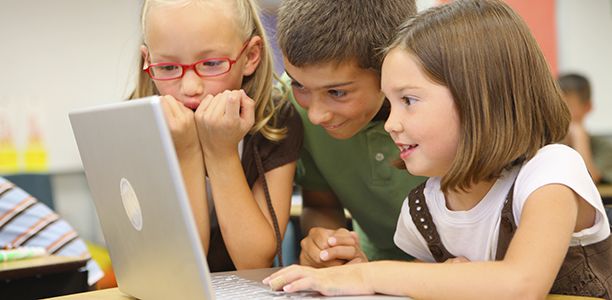Students who used school-issued laptop computers at school and home perform better in their HSC science exams than those not given the computers, research from the University of Sydney has shown.
“While improvements are small to medium they are statistically significant, particularly in the context of highly competitive HSC exams where a margin of a few marks can affect a student’s future at university or in the job market,” said Simon Crook, a PhD candidate in the physics education research group at the University of Sydney and lead author of an article recently published in the International Journal of Science Education.
“Most importantly our research suggests the best improvements came when the computers were used to challenge and extend students’ analytical and higher-order thinking skills.”
While there is widespread research on the impact of using laptops on students’ motivation, there is a lack of research on their influence on academic achievement, especially for science.
The study capitalised on a unique natural experiment in which only half of Year 9 NSW students in 2008 received laptops from their schools. In late 2011, when these students sat their HSC examinations half of them had been schooled with their own laptops for more than three years, and half had not.
This unique situation was created by the staged roll-out of the campaign, the Digital Education Revolution, in which students were given their own laptops to use at home and school.
The research looked at the results of 967 science students from 12 high schools in Sydney, in HSC biology, chemistry and physics.
Effect size measures the improvement in the students’ performance following an intervention, in this case laptops. In this study the improvement was largest in physics – almost double the average effect size for reducing class sizes, as found in other research. Applied to HSC marks, the effect size would see a possible gain of 3.5 marks for physics.
“Our analysis shows improved exam performance was not due to how much students used their computers but what they did with them,” said Simon Crook.
The laptop gifting policy appears to have been a catalyst for more student-centered and personalised learning. Specifically it would appear the results in physics were associated with the increased use of simulations and spreadsheets, activities associated with higher-order thinking skills, especially beneficial to the study of science.
“Simulations,(such as the Thomson’s experiment simulation created by the University of Sydney) allow students to understand and participate in experiments that are too difficult or dangerous to perform at school or are inaccessible because of their conceptual complexity. Spreadsheets encourage an intellectually demanding level of student interaction with their own experimental data.
“The question of why physics teachers have embraced these materials more than teachers in other science subjects appears to relate to their intrinsic skills in this area and the explicit demands of the physics curriculum which has resulted in collaboration and the sharing of these digital resources.”
The authors on the article are Simon Crook and Associate Professor Manju Sharma from the School of Physics and Dr Rachel Wilson from the Faculty of Education and Social Work.
(Source: The University of Sydney, International Journal of Science Education)











